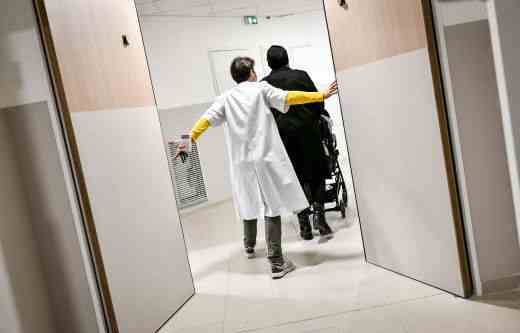The CHU of Bordeaux wants to play on all fronts to stop the shortage of medical and paramedical personnel, and to prepare as well as possible for future difficult periods. Since the beginning of the summer, he has recruited 1,000 people. “We have never recruited so many in four months but we must not relax the effort, points out Yann Bubien, director of the Bordeaux University Hospital. They also have to like each other and stay. With more than 14,500 employees, the establishment is the first regional employer.
To succeed in attracting new practitioners to its fold, the establishment offers executives and doctors the possibility of posting announcements on social networks themselves. Even if the number of recruitments was high this summer, positions in geriatrics are difficult to find takers. The recruitment of nurses and orderlies for night shifts is also very difficult. Night pay has been increased. “We expect a lot to avoid departures,” says Yann Bubien.
Train regulators
Since the spring, access to the Pellegrin emergency room has been regulated between 5 p.m. and 8 a.m. “We recorded a drop in activity of 20 to 25% in the Pellegrin emergency room, points out Philippe Revel, head of the adult emergency department – SAMU SMUR. And, at the same time, an increase in the number of calls (to 15), of the order of 20%. If medical students have been asked to help take calls, recruitment is mandatory for the sustainability of regulation.
A training center for medical regulation assistants (AMR) was urgently requested by the CHU from the Ministry of Health, which responded favorably in the summer: “It will open as soon as possible, from the year next, to reduce the waiting time”, announces Yann Bubien. “This will allow us to double our regional training capacity with this centre,” adds Professor Philippe Revel.
AMRs must acquire valuable skills to detect from the first pick-up whether it is a vital emergency or a “felt” emergency, which can wait a bit. If this is the case, people are referred to SOS doctors or a general practitioner. This organization makes it possible to avoid long waits in emergencies for non-emergency cases.

